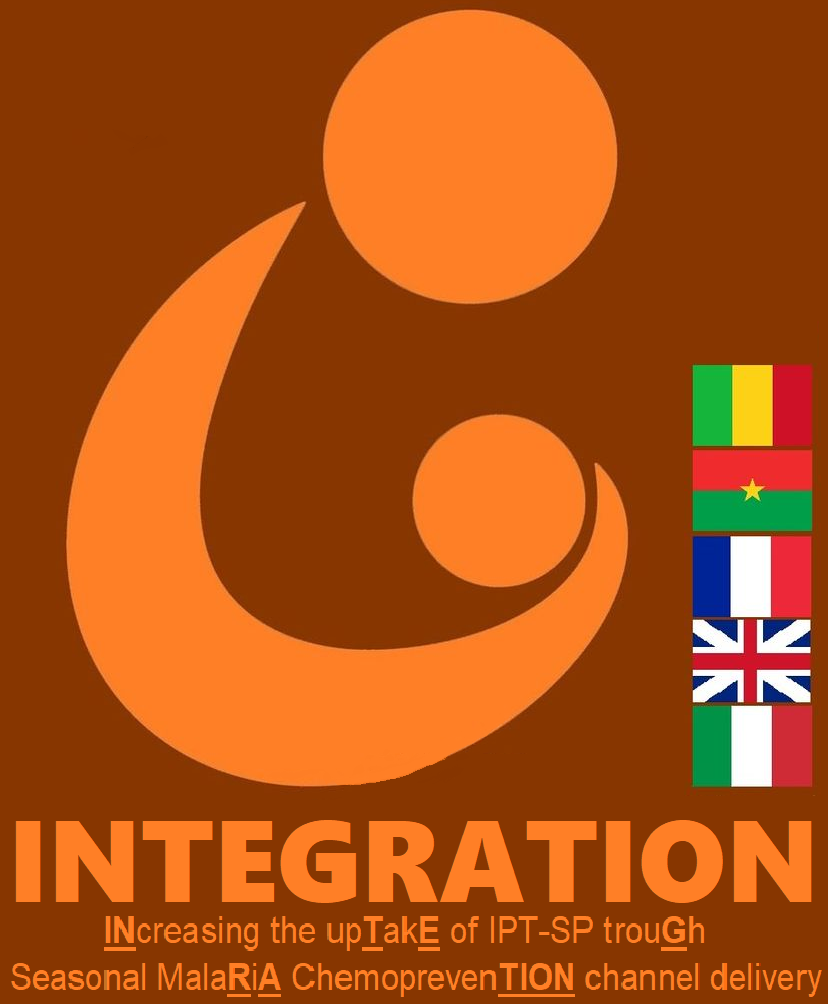The INTEGRATION Project



Intermittent preventive treatment (IPTp) with sulphadoxine-pyrimethamine (SP) is recommended to prevent the adverse outcomes of malaria in pregnancy.
Access to IPTp-SP among pregnant women in sub-Saharan Africa remains low, despite concerted efforts to improve access in the last 15 years. Among the multi-faceted barriers identified by research, late attendance to ANC services during pregnancy and missed opportunities by health providers are widespread.
The 2016 WHO recommendations, increasing the number of ANC contacts to a minimum of height, do not align with the monthly IPTp-SP regimen and pose important implementation challenges. Further strategies are needed to improve IPTp-SP coverage. By contrast, the coverage of seasonal malaria chemoprevention (SMC) in the Sahelian countries of West Africa is high (74%-90%). SMC consists of monthly door-to-door-delivery (DDD) visits to deliver antimalarial drugs (amodiaquine/SP) to children aged 3-59 months during the 4-month rainy season, annually. This success makes the SMC channel a potentially effective and complementary mechanism to boost IPTp-SP coverage among pregnant women.
The primary objective of INTEGRATION is to evaluate whether the addition of IPTp-SP to SMC delivery can increase coverage and timeliness of IPTp-SP and promote ANC attendance among pregnant women in Mali and Burkina-Faso.
This will be a cluster-randomized, implementation trial in the routine health system to compare the coverage (primary endpoint) and timeliness of IPTp-SP and ANC uptake among pregnant women who receive monthly IPTp-SP through the SMC channel (DDD visits) during the rainy season and through ANC services thereafter (intervention), versus standard practice (ANC alone).
Outcomes will include IPTp-SP coverage, retention in ANC, and IPTp-SP delivery effectiveness, in close adherence with the scope of the call topic.
The study results will be used to inform policy and practice in each country leading to improved policies, programmes and practices, with potential to impact policy in other SMC countries (Niger, Senegal, Chad, etc.).
Research outcomes will be disseminated through networking, dissemination and communication strategies.
This proposal takes into consideration the impact of the ongoing COVID-19 pandemic on health service delivery. Indeed, WHO estimates a doubling of malaria deaths already this year due to disruptions to malaria control caused by the pandemic to address the impact of COVID-19 on the uptake of ANC services among pregnant women. We will conduct qualitative research to explore the barriers to ANC access during the pandemic and develop a package of interventions tailored responses, such as community sensitization, awareness campaigns and social mobilization to improve uptake.
Work Packages




